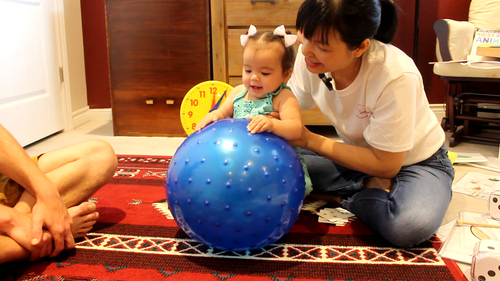Are you wondering how to ensure your child receives the best health and nutrition during their crucial early years? Proper habits established during this formative period can set the foundation for a lifetime of good health. Establishing healthy habits in child's early years can set the foundation for a lifetime of good health. In this comprehensive guide, we'll explore eight essential health and nutrition tips to help you plan out the best fit diet for your child.
1. Breastfeeding for the First Six Months
Breastfeeding is one of the most natural and effective ways to provide infants with the nutrients they need for healthy growth and development. The World Health Organization recommends exclusive breastfeeding for the first six months of life. Breast milk contains the perfect mix of vitamins, proteins, and fats, and it’s more easily digested than formula. Additionally, breast milk contains antibodies that help your baby fight off viruses and bacteria, reducing the risk of many infections and diseases. Breastfeeding also promotes bonding between mother and child, offering both nutritional and emotional benefits.
2. Introduce Solid Foods at the Right Time
Introducing solid foods is a significant milestone in your baby’s development. The American Academy of Pediatrics suggests starting solid foods at around six months of age. Begin with iron-fortified cereals and pureed meats, as iron is crucial for brain development. Gradually introduce fruits, vegetables, and other food groups. Remember to introduce one new food at a time and monitor for any allergic reactions. This gradual introduction helps identify potential allergies and ensures your baby gets accustomed to different textures and tastes.

3. Offer a Variety of Fruits and Vegetables
A diet rich in fruits and vegetables provides essential vitamins, minerals, and fiber. These nutrients are vital for your child's growth and development. Aim to offer a rainbow of colorful fruits and vegetables each day, as different colors typically indicate various nutrients. For example, orange fruits and vegetables like carrots and sweet potatoes are high in beta-carotene, which is important for eye health. Green leafy vegetables like spinach and kale are rich in iron and folate, crucial for brain development and red blood cell production.
4. Ensure Adequate Hydration
Hydration is crucial for your child's health and nutrition. Water makes up more than half of the body’s weight and is essential for every bodily function. Encourage your child to drink water regularly and limit sugary drinks like juice and soda. Adequate hydration helps maintain body temperature, transport nutrients, and remove waste products. A good rule of thumb is to offer water with every meal and snack. Additionally, teaching your child the importance of staying hydrated can instill lifelong healthy habits.
5. Limit Sugar and Salt Intake
High sugar and salt intake can lead to health issues such as obesity, high blood pressure, and tooth decay. To promote a healthy diet, offer your child natural, unprocessed foods and avoid adding extra salt or sugar to their meals. Instead of sugary snacks, opt for fruits, yogurt, or whole grain options. Limiting processed foods and sugary beverages can significantly impact your child's long-term health. Teaching your child to appreciate the natural flavors of food can also reduce their cravings for sweet and salty snacks in the future.
6. Promote Physical Activity
Physical activity is essential for your child’s overall development. Regular exercise helps build strong bones and muscles, supports a healthy heart, and improves coordination and balance. Encourage your child to engage in at least one hour of physical activity each day. This can include playing outdoors, riding a bike, dancing, or participating in sports. Active play is not only beneficial for physical health but also for mental well-being. It can help reduce stress, improve mood, and enhance concentration and learning.
Discover tips to keep your child healthy and support their well-rounded development here.
7. Establish Consistent Meal and Snack Times
Consistency in meal and snack times plays an important role in maintaining your child’s health and nutrition balance and helps regulate your child’s metabolism and prevents overeating. Establishing a routine can make children feel more secure and help develop good eating habits. Aim for three balanced meals and two healthy snacks each day. Regular meal times also provide opportunities for family bonding and instilling healthy eating practices. Eating together as a family can encourage
8. Foster a Positive Eating Environment
Creating a positive eating environment can greatly influence your child’s relationship with food. Avoid using food as a reward or punishment, and encourage your child to listen to their hunger and fullness cues. Make mealtime enjoyable and stress-free by involving your child in meal planning and preparation. Positive reinforcement and setting a good example by eating a variety of healthy foods can encourage children to try new foods and develop healthy eating habits. Additionally, teaching children about the origins and benefits of different foods can make them more interested and engaged in their meals.
A balanced diet and healthy lifestyle are fundamental to your child's growth and development. Implementing these health and nutrition tips can help your child build a strong foundation for a healthy future. Proper health and nutrition during the early years not only support physical growth but also cognitive development, emotional well-being, and the establishment of lifelong healthy habits.
By prioritizing your child's health and nutrition during their early years, you are investing in their long-term well-being. Incorporating these tips into your child's daily routine can lead to significant improvements in their health and development. Don't wait—take the first step towards a healthier future for your child today!
Smartizen provided various course and programs that tailored to your kid’s need. Maximize their abilities with right brain training programs that developing their cognitive, emotional, and social interactions. Learn more about our right brain tutoring courses for babies from 6 months to 6 years old with a free trial class here. Let’s Smartizen help you pave up your kid’s pathway to the brighter future.








